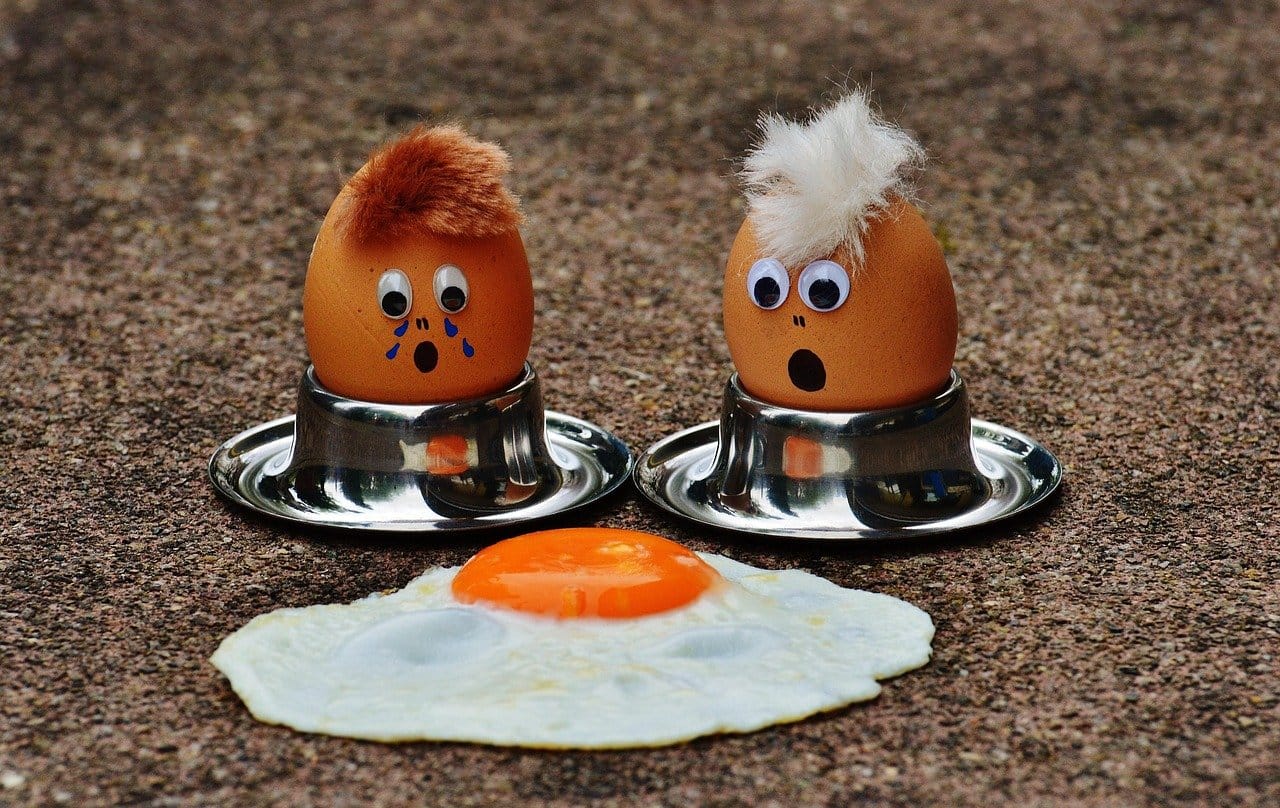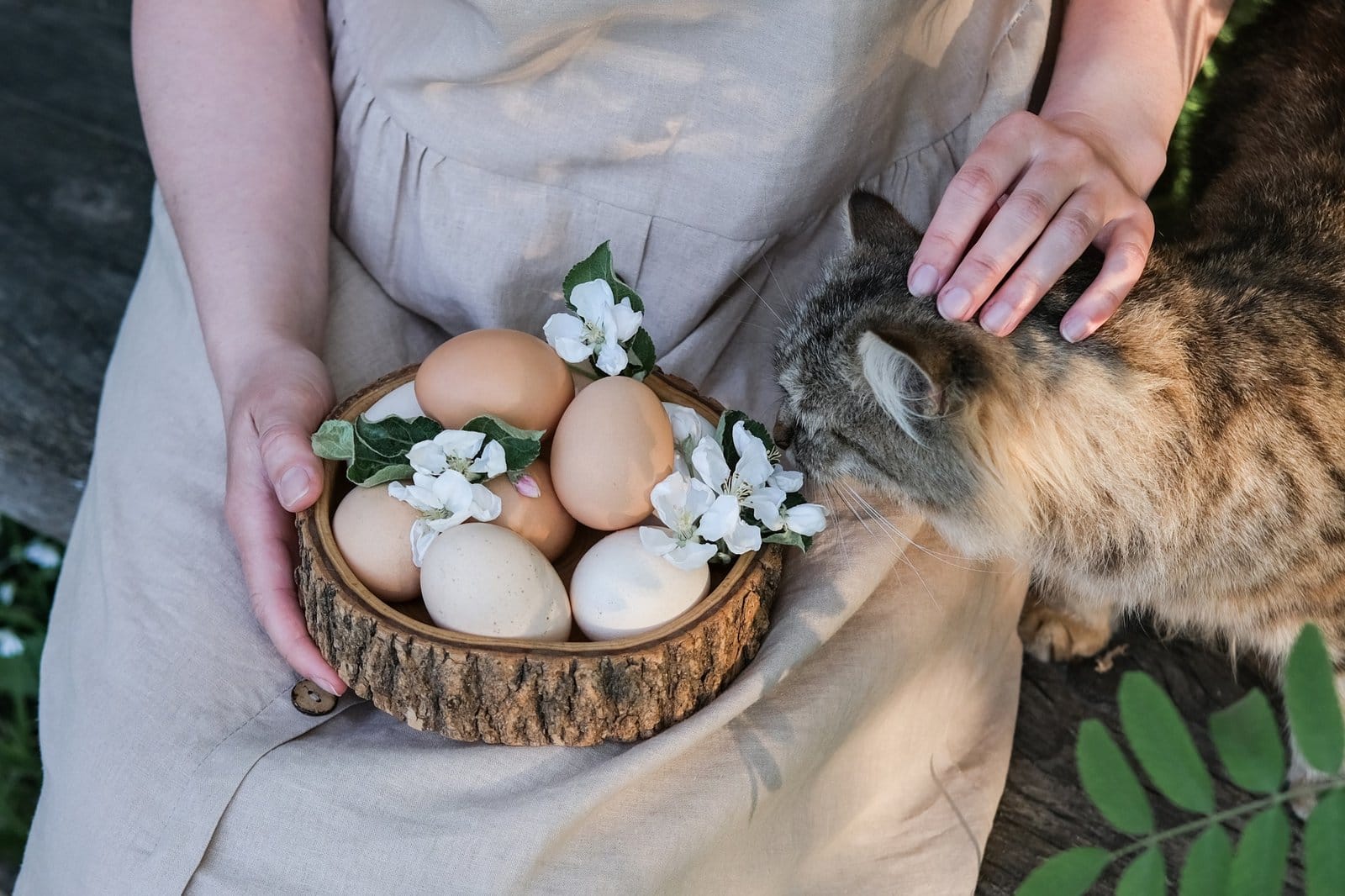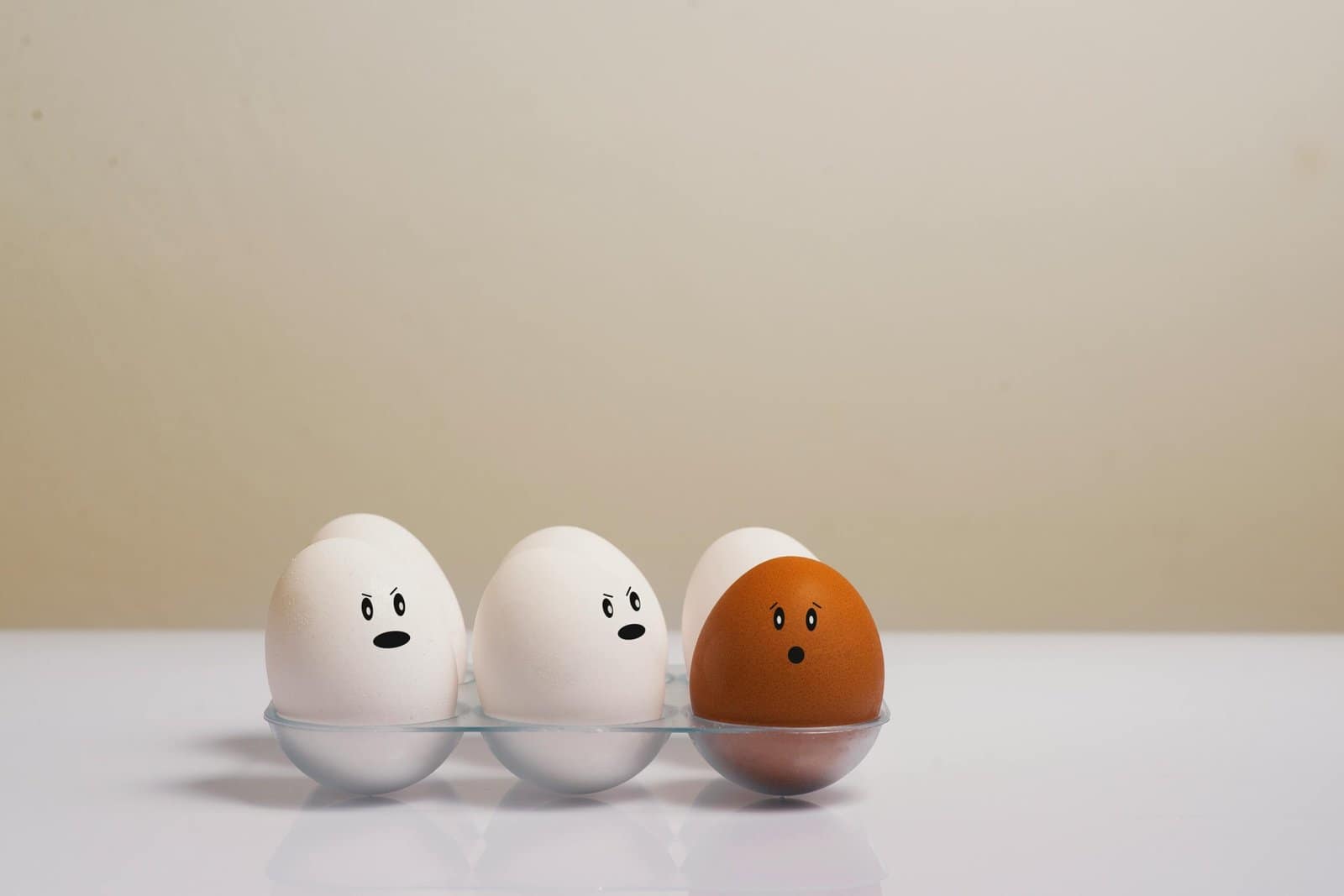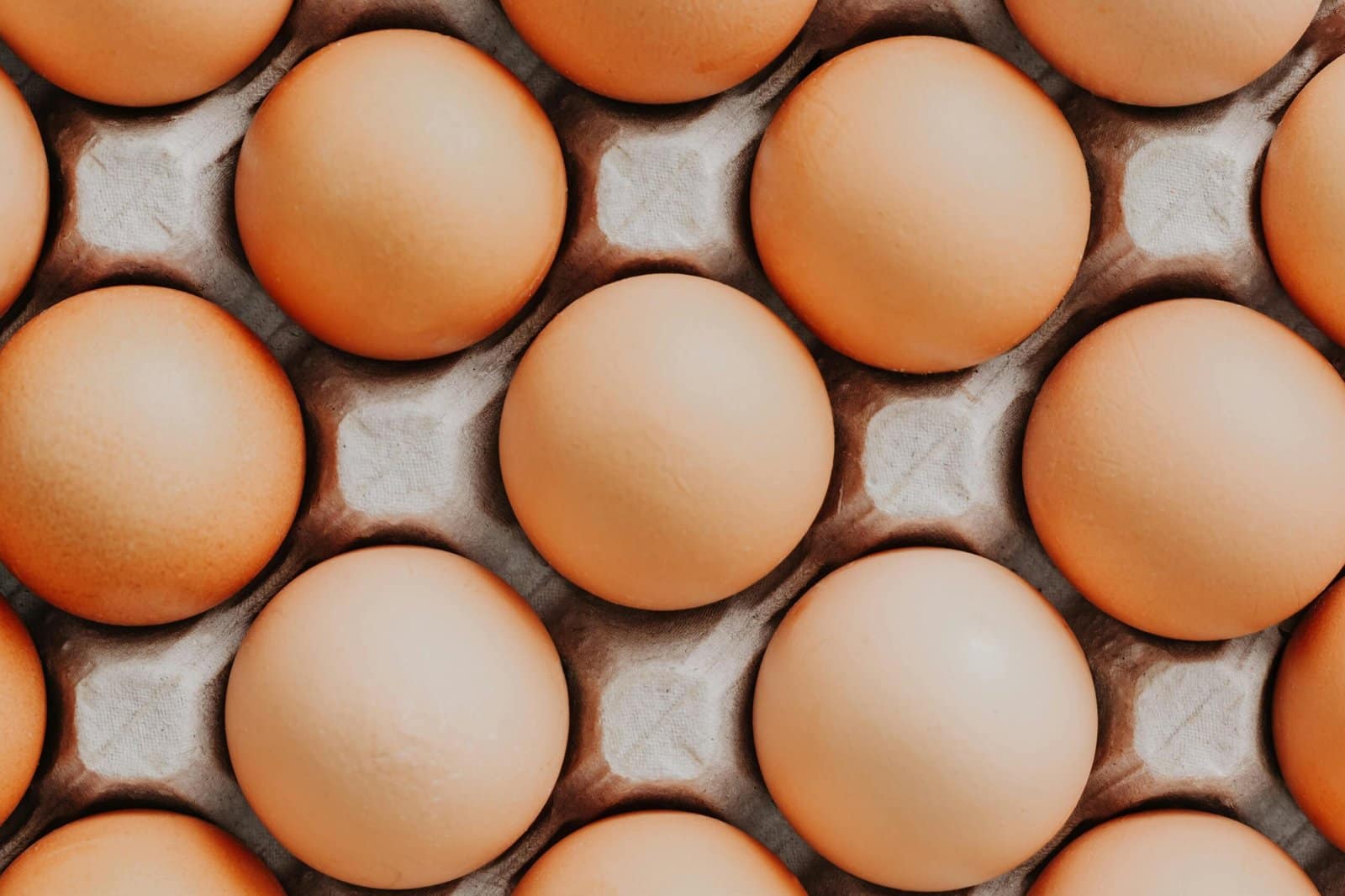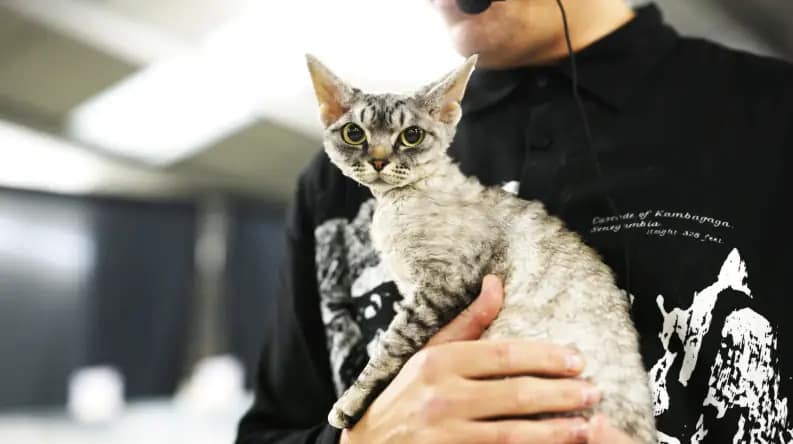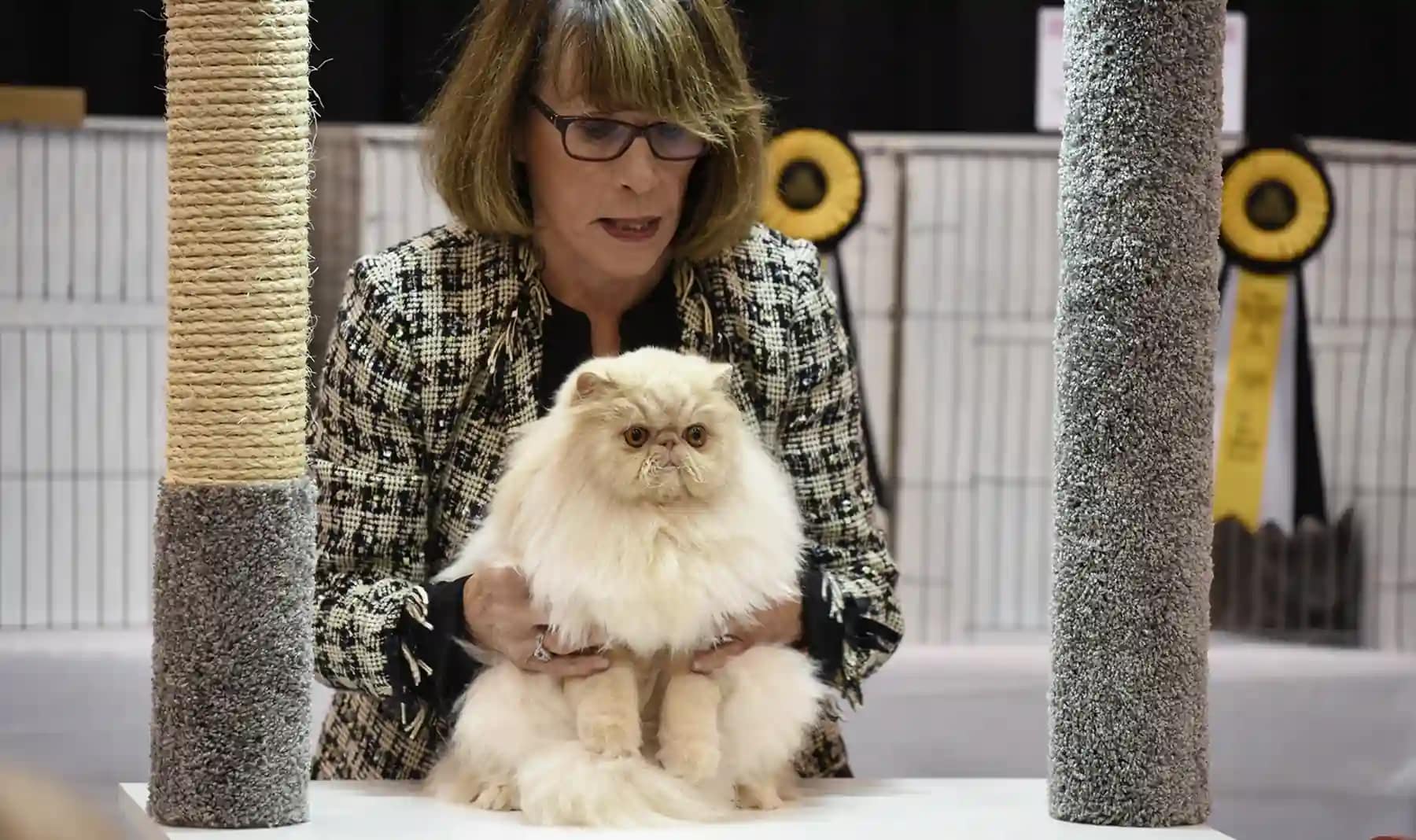Imagine it’s a Sunday morning: you’re cooking a quick scrambled egg breakfast, and your cat is weaving between your legs, meowing with interest. You pause, spatula in hand, and wonder – “Can my cat eat eggs?”
As devoted cat parents and feline nutrition geeks, we’ve dug into the science and spoke with veterinarians to crack open the truth about cats and eggs.
The good news: Yes, cats can eat eggs – but with a few important caveats.
In this article, we’ll explore “Are eggs good for cats?”, “Can cats eat scrambled eggs?”, “How much egg can I feed my cat?”, “Can kittens eat eggs?”, and “Can cats eat raw eggs?”. Along the way, we’ll provide nutritional insights (egg whites vs. yolks vs. shells), feeding tips, and safety precautions.
Are Eggs Good for Cats?
Eggs are often called “nature’s perfect protein,” and it turns out they offer some great benefits for our feline friends too. Cats are obligate carnivores, meaning their diet must consist mainly of animal protein.
In the wild, a cat might raid a bird’s nest for eggs – and for good reason. Eggs are packed with high-quality protein and essential nutrients that can complement a cat’s meat-based diet.
In fact, many premium cat food formulas include egg as an ingredient to boost protein content and nutrient density.
Let’s break down the nutritional components of an egg to see why eggs can be a healthy occasional food for cats:
Egg White (Albumen)
The egg white is almost pure protein and water, with minimal fat and calories. It contains about half the protein of the egg (roughly 3.5 grams of protein in the white of a large egg) and no cholesterol.
Egg whites also carry some B vitamins (like riboflavin) and selenium. For a chubby cat or one that needs a high-protein/low-fat treat, plain cooked egg white is ideal.
Egg Yolk
The yolk is the nutrient-packed golden center. It’s richer in calories (the yolk of a large egg contains ~55–60 calories) because it’s loaded with fats (around 4.5–5 grams of fat) in addition to about 2.5–3 grams of protein.
The yolk is where nearly all the vitamins and minerals reside – including vitamin A, vitamin D, vitamin E, vitamin K, B12, biotin, choline, and more. These nutrients support your cat’s vision, immune function, nervous system, and skin and coat health.
However, yolks also contain cholesterol and a higher fat content, so too much yolk can unbalance a cat’s diet. Cats with pancreatitis or obesity should avoid yolks due to the high fat.
Eggshel
Believe it or not, even the shell can have a use! Eggshells are made mostly of calcium carbonate – a great source of calcium and minerals. A single eggshell can contain around 380–400 mg of calcium.
Crushed into a fine powder, cooked eggshell can serve as a calcium supplement for cats, helping support bone health.
Important: Always boil or bake eggshells before using, to eliminate bacteria, and grind them into a powder to avoid choking hazards. Only use eggshell powder under veterinary guidance, especially if your cat has specific mineral need.
In summary
Eggs are highly nutritious for cats. They provide an easily digestible protein source, healthy fats (including omega-3 and omega-6 fatty acids for brain and coat health), and a spectrum of vitamins and minerals.
In fact, eggs contain 10 of the 11 essential amino acids cats require from their diet – almost a perfect profile, except they lack significant taurine (the one crucial amino acid cats can’t get from eggs alone).
This means eggs can supplement your cat’s protein intake, but they cannot replace nutritionally complete cat food which supplies taurine and other essentials.
Nutritional Breakdown of Egg White vs. Egg Yolk (per one large egg)
| Nutrient | Egg White (large egg) | Egg Yolk (large egg) |
|---|---|---|
| Calories | ~17 kcal | ~55 kcal |
| Protein | ~3.6 g | ~2.7 g |
| Fat | ~0 g | ~4.5 g (mostly in yolk) |
| Key Vitamins | B2 (riboflavin), traces of others | Vitamins A, D, E, K, B12, Biotin, Choline (abundant in yolk) |
| Key Minerals | Selenium, Magnesium (small amounts) | Iron, Zinc, Phosphorus, Selenium (higher in yolk) |
| Other Notes | No cholesterol; contains avidin (raw) which binds biotin | ~186 mg cholesterol in one yolk; high fat content |
Benefits of Feeding Eggs to Cats
With that nutritional analysis in mind, here are some health benefits your cat can gain from a little egg in their diet:
High-Quality Protein
Eggs provide complete animal protein that is highly digestible for cats. The amino acids in egg help maintain lean muscle mass and provide energy. Many cat breeders even add occasional eggs to diets to promote shiny coats and healthy claws in show cats.
If your cat is a picky eater, a bit of egg can be an enticing protein boost.
Healthy Fats for Skin & Coat
Egg yolks contain beneficial fatty acids, including linoleic acid and arachidonic acid, which support skin health and coat glossiness. They also provide omega-3 and omega-6 fats that nourish the nervous system and may have anti-inflammatory effects.
You might notice a softer, shinier fur on a cat getting the occasional egg treat, thanks to nutrients like vitamin E and biotin in the yolk.
Vitamins and Minerals
As noted, eggs are little multivitamin packs. The vitamin A in yolk supports vision (especially night vision) and immune function.
B vitamins (B2 riboflavin, B12 cobalamin, B7 biotin, B1 thiamine) help with energy metabolism, digestion, and nerve function.
Vitamin D in eggs works with calcium for bone health. Minerals like iron and selenium support red blood cell production and antioxidant defense.
While your cat’s regular food should already provide these nutrients, a bit of egg can give an extra boost.
Highly Palatable & Digestible
Most cats love the taste of eggs – they’re rich and savory. Luckily, eggs are also easy on feline stomachs when cooked.
In fact, eggs are often used in sensitive-stomach diets because they are simple proteins that are rarely allergenic for cats. If your cat has had minor digestive upset, some veterinarians even suggest plain scrambled eggs as a bland protein source to help them recover (much like boiled chicken).
Every cat is different, but generally eggs rank high on digestibility and acceptance.
How Much Egg Can I Feed My Cat?
With eggs, portion control is everything. Even though eggs are nutritious, they are rich in calories relative to a cat’s small size. To keep your cat’s overall diet balanced, egg should be an occasional treat – not a daily meal.
A good rule of thumb (endorsed by veterinarians) is the 10% rule: treats should make up no more than 10% of your cat’s daily calorie intake. Eggs, being high in protein and fat, definitely count as a calorie-dense treat.
So, how much egg is just right? That can depend on your cat’s size and activity level. Below is a quick reference table for different cat weights, their approximate daily calorie needs, and how much egg would represent 10% of those calories:
Table: Recommended Egg Treat Portions by Cat Weight
| Cat Weight | Approx. Daily Calories | 10% Treat Calories | Equivalent Egg Amount |
|---|---|---|---|
| 5 lb (2.3 kg) | ~180 kcal/day | ~18 kcal | ≈ 1/4 of an egg (about 1 tablespoon) |
| 10 lb (4.5 kg) | ~240–250 kcal/day | ~24–25 kcal | ≈ 1/3 of an egg (a few spoonfuls) |
| 15 lb (6.8 kg) | ~300 kcal/day | ~30 kcal | ≈ 1/2 of an egg (at most, per treat) |
(Calorie needs are estimates for an adult cat at ideal weight. Individual needs vary; always adjust if your cat is very active, a growing kitten, or needs a special diet.)
As you can see, for most cats a few bites of egg is plenty.
Veterinarians recommend offering egg treats at most 1–2 times per week in small quantities, rather than daily, to prevent excess calorie intake and nutrient imbalances.
What about cats with special conditions?
If your cat has kidney disease, pancreatitis, diabetes, or is overweight, discuss egg treats with your vet first.
For example, yolks are high in phosphorus and fat, which might be unsuitable for a cat with kidney or pancreatic issues. Some vets advise using only egg whites (no yolk) for cats needing a low-fat or low-phosphorus diet.
Similarly, if your cat is on a balanced weight-loss diet, any extra treats should be minimal. Always prioritize your cat’s specific health needs over treat temptations.
Watch the waistline
Keep an eye on your cat’s weight when introducing any new treats like eggs. Cats are small creatures, and even an extra 20–30 calories a day (the equivalent of a second breakfast for a human) can lead to weight gain over time.
Signs that you’re overdoing the eggs include your cat gaining weight, vomiting hairballs more (obesity can cause grooming issues), or leaving some of their regular food uneaten (because the egg filled them up).
Can Kittens Eat Eggs?
Yes, kittens can eat eggs in small, properly cooked portions – but with a few extra cautions. Just like adult cats, kittens may enjoy the taste of egg and can benefit from the protein and nutrients.
However, a kitten’s primary food should be a complete, formulated kitten diet (whether that’s high-quality kitten kibble or wet food) to make sure they get all the nutrients required for growth.
Eggs should only be an occasional supplement once the kitten is weaned and eating solid foods reliably.
Here are some guidelines from our experience (and vet input) on feeding eggs to kittens:
Wait Until After Weaning
Do not give eggs (or any people food) to very young kittens that are still nursing or bottle-feeding. Kittens should be fully weaned (usually around 8–10 weeks old) and eating regular kitten food before you introduce an egg treat. Their digestive systems need to mature a bit.
Cook Eggs Thoroughly
The same rule for adults applies to kittens, even more so. Kittens have developing immune systems, so never give a kitten raw or undercooked egg due to the risk of bacteria (Salmonella, etc.). Always cook the egg till firm. Scrambled or hard-boiled (mashed up) tends to work well for kittens since it’s soft.
Offer a Tiny Amount
A kitten’s tummy is even smaller than an adult cat’s. A few licks or a pea-sized bite of egg is plenty for their first taste. For a 2-3 pound kitten, even a teaspoon of egg is a big treat. We recommend offering just a small nibble initially – perhaps 1/2 teaspoon of plain cooked egg – to see how they handle it.
Kittens have high nutrient requirements for growth, so you don’t want an egg displacing too much of their balanced kitten food.
No Additives
This bears repeating – no salt, butter, milk, or seasoning on the egg, especially for kittens. Their systems are sensitive. Plain cooked egg only.
Eggs as Training Treats
During litter training or socialization exercises, a tiny dab of scrambled egg on your finger can be a high-value reward. It’s smelly and enticing! Just be cautious not to overdo it – a little goes a long way for those tiny mouths.
Can Cats Eat Raw Eggs?
You might recall images of barn cats stealing eggs or big cats in the wild eating raw prey, eggs and all. It’s natural to wonder, “Can I crack a raw egg over my cat’s food? Would they benefit from the raw yolk?”
The consensus among veterinarians and pet nutrition experts is no – cats should not eat raw eggs.
The risks far outweigh any potential benefit. Here’s why you should always cook eggs before feeding them to cats:
Salmonella and Other Bacteria
Raw eggs can carry harmful bacteria like Salmonella and E. coli. Cats (and humans) can get seriously ill from these food-borne pathogens. Symptoms in cats may include vomiting, diarrhea (often bloody), fever, lethargy, and loss of appetite.
A bacterial infection can be life-threatening, especially for kittens, senior cats, or cats with weakened immune systems.
According to the CDC, about 1 in 20,000 eggs may contain Salmonella, and millions of people are infected each year from raw or undercooked eggs.
Your cat could not only get sick themselves, but also shed bacteria in their feces and saliva, potentially exposing your family. Cooking eggs to 160°F kills these bacteria, rendering the egg safe.
Avidin and Biotin Deficiency
Raw egg whites contain a protein called avidin. Avidin binds strongly to biotin (vitamin B7), an essential B-vitamin for cats (important for healthy skin, coat, and metabolism).
When a cat eats raw egg white regularly, the avidin can prevent them from absorbing biotin, leading to a deficiency over time. Biotin deficiency can cause skin problems, hair loss, and poor growth.
The good news is that cooking denatures avidin, meaning it can no longer bind biotin. So, cooked egg doesn’t pose this issue, but raw egg whites do. This is another scientific reason to avoid raw eggs, especially frequently.
Difficulty Digesting Raw Egg
Cats are carnivores and can digest raw meat to an extent, but raw egg is a bit different. Some cats may vomit or get diarrhea even from a fresh raw egg simply because it’s not as digestible as a cooked one.
Raw egg proteins are less accessible to the cat’s digestive enzymes. Cooking “unfolds” the proteins and makes them easier to digest, which is one reason we cook our own food too.
No Nutritional Advantage
Unlike some foods where certain nutrients are higher when raw, eggs don’t offer a notable nutritional advantage raw versus cooked for cats.
In fact, cooking improves the availability of egg protein. So there’s really no benefit that your cat would miss out on by skipping raw eggs.
Any vitamins that might be slightly reduced by cooking (like a bit of vitamin B2 or B5) are plentiful in a cat’s regular diet or the cooked egg anyway.
Given these points, we strongly advise against feeding raw eggs to your kitty. If your cat happens to sneak a lick of cake batter or eats a raw egg you accidentally dropped, monitor them closely for the next day or two.
Bottom line: Always cook eggs for your cat. It only takes a minute to scramble or boil an egg, and you eliminate the scary risks of bacteria and avidin issues. Your cat gets all the yummy taste and nutrition, with none of the danger. That’s a win-win!
(Fun fact: Cooking also neutralizes an enzyme inhibitor in egg white that can interfere with protein digestion. So cats actually get more protein from a cooked egg than a raw one.)
Conclusion
At SnuggleSouls, we believe in feeding our cats with both love and science in mind. So, can cats eat eggs? Absolutely YES – when properly cooked and given sensibly. Eggs offer a powerhouse of protein and nutrients that can complement your cat’s diet, and most cats relish the taste.
By following these tips, you can safely share the occasional “egg snack” with your furry family member. In our experience, most cats absolutely adore eggs – you might even find them sneaking onto the counter when you’re cooking breakfast!
With the knowledge from this guide, you can feel confident treating your kitty to this human food in a way that supports their health.
We hope this comprehensive guide answered all your egg-related questions. From one cat lover to another, it’s a great feeling to treat our pets to something special – and with eggs, you can do so scientifically and safely.
Want to learn more about your cat’s diet?
What Can Cats Eat? Safe & Unsafe Human Foods for Cats
FAQ
Can cats eat scrambled eggs with butter or milk?
No. While plain scrambled eggs are safe for cats, butter and milk should be avoided. Many cats are lactose intolerant, and added fat or salt can lead to digestive issues or weight gain.
Is it okay to feed cats eggs every day?
Not recommended. Eggs should be treated as an occasional snack—ideally 1–2 times per week—to prevent excessive calorie and fat intake.
Can I feed my cat raw egg yolk only?
No. Raw egg yolk may still carry bacteria like Salmonella, and lacks the safety of cooked eggs. Cooked yolks are safer and just as nutritious.
What are signs of egg allergy in cats?
Symptoms include itchy skin, vomiting, diarrhea, ear infections, or excessive grooming. Discontinue eggs and consult your vet if symptoms appear.
Can I feed eggshell powder to my cat?
Yes, but only after boiling and grinding, and with your vet’s guidance. Eggshells are rich in calcium, but over-supplementation can cause imbalance.
How much egg is safe for a 10-pound cat?
About 1 tablespoon of cooked egg (≈1/3 of a large egg) is appropriate, aligning with the 10% calorie rule for treats.
Are eggs good for kittens?
Yes, cooked eggs can be offered in tiny amounts after weaning, but they must not replace kitten-formulated food, which provides complete nutrition.
References
National Research Council (NRC). (2006). Nutrient Requirements of Dogs and Cats. Washington, DC: The National Academies Press. https://nap.nationalacademies.org/catalog/10668/nutrient-requirements-of-dogs-and-cats
Case, L. P., Daristotle, L., Hayek, M. G., & Raasch, M. F. (2011). Canine and Feline Nutrition: A Resource for Companion Animal Professionals (3rd ed.). Mosby
Center for Food Safety and Applied Nutrition (CFSAN), FDA. (2019). Foodborne Pathogenic Microorganisms and Natural Toxins Handbook (Bad Bug Book), 2nd Ed. https://www.fda.gov/media/83271/download
Association of American Feed Control Officials (AAFCO). (2023). AAFCO Dog and Cat Food Nutrient Profiles. Retrieved from https://www.aafco.org
Thatcher, C. D., Hand, M. S., & Remillard, R. L. (2010). Small Animal Clinical Nutrition (5th ed.). Topeka, KS: Mark Morris Institute.https://www.markmorrisinstitute.org/sacn5_download.html
Sparkes, A. H., et al. (2016). ISFM consensus guidelines on feline nutrition and feeding management. Journal of Feline Medicine and Surgery, 18(7), 576–586.

